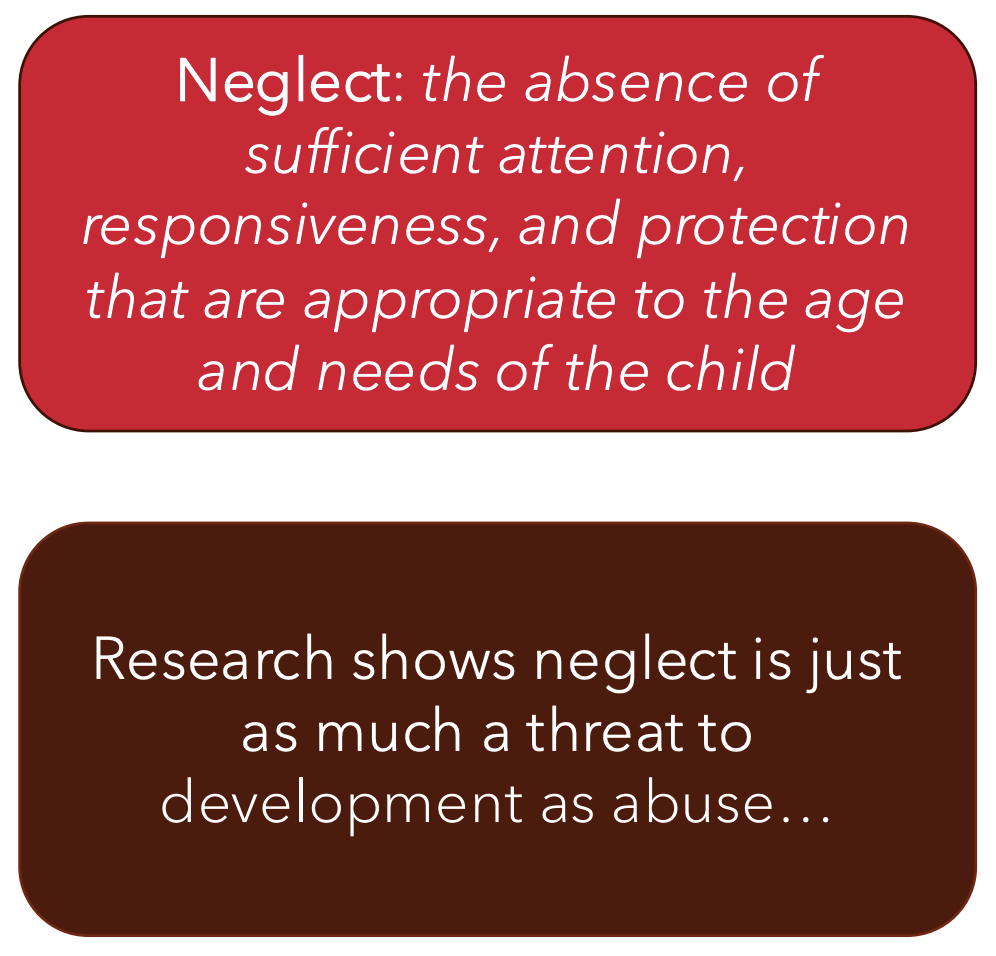ADOPTION, FOSTER CARE, & INSTITUTIONALIZATION
1/38
Earn XP
Description and Tags
kinship
Name | Mastery | Learn | Test | Matching | Spaced |
|---|
No study sessions yet.
39 Terms
When children are cared for by someone other than their biological parent(s)
Adoption: the permanent, legal placement of an abandoned, relinquished, or orphaned child within a family of relatives (kinship adoption) or within an unrelated family (non-kinship adoption).
Adoption
Not uniquely human.
Not a modern invention.
No “standard” adoption!
Adoption
Why are children adopted? Ie, what are the reasons children are placed for adoption, vs cared for by their biological parent(s)?
Inability to provide care for child child (economically, psychologically, physically).
Lack of support (family, society).
Lack of desire to be a parent.
Adoption: A Protective Intervention
Historically, adoption often seen as a way to “help” children out of adverse environments.
- Institutional care/orphanages, neglect, poverty, unstable foster care placement.
With adoption, children typically experience…
- An increase in family SES.
- A move to an environment with more stability, security, stimulation, etc.
Adoption: A Protective Intervention
Adoption as growth in physical development, attachment, cognitive development, school achievement, self-esteem.
Compared to children raised in an adverse environment of origin.
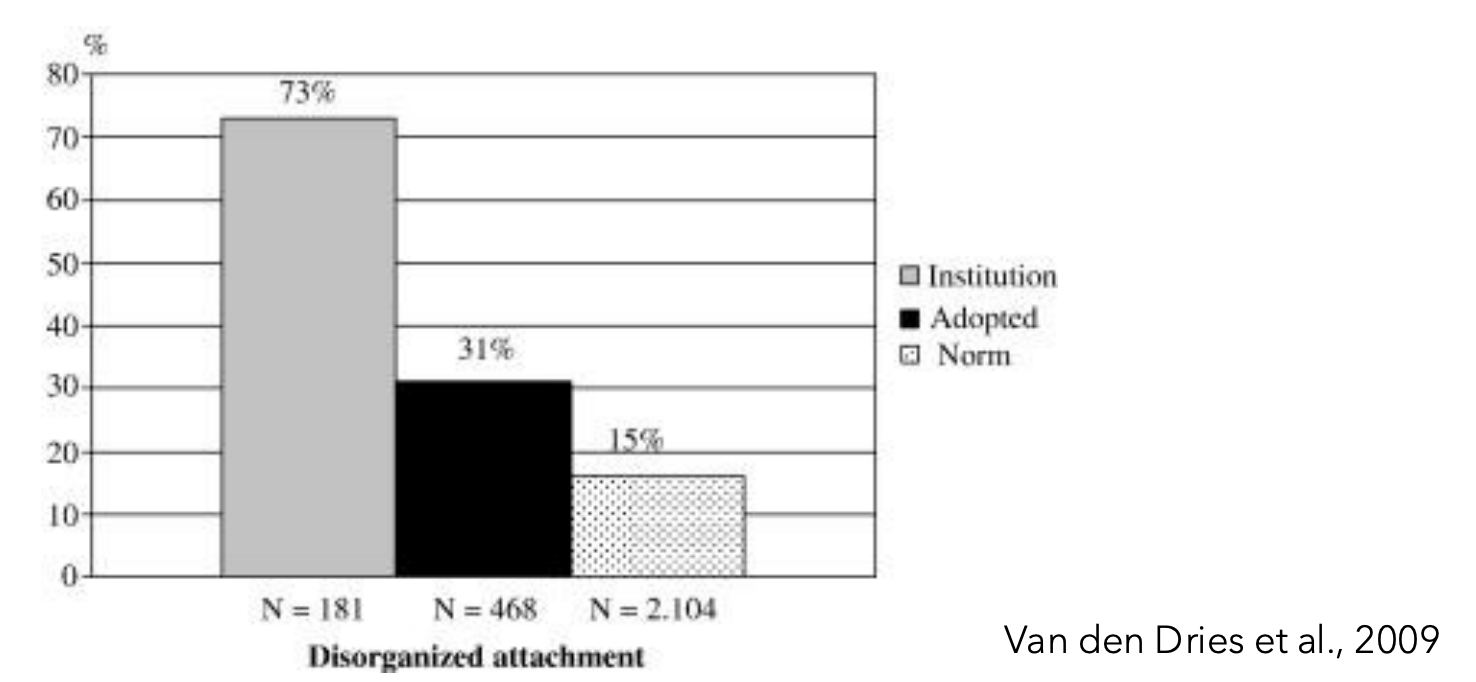

Adoption: A Risk Factor
Disproportionate numbers of adopted children in mental health settings.
Adopted children at greater risk for problems in school, learning disabilities, behavior problems (externalizing), substance abuse, insecure attachment.
Why?
- Adverse pre- and post-natal environments?
- Challenges in identity development?
- Conceptualizing adoption loss?
- Genetic predispositions?
Adoption: A Risk Factor
Factors to consider:
- Adverse pre-placement environments.
- Quality of adoptive parenting.
- Age of child.
- Gender of child.
- Openness in adoption → openness in communication about adoption, satisfaction with openness.
- Cross-racial/international adoption. Complex! Benefits conferred to adoptive families based on their racial/ethnic status. Negative impacts of prejudice/stigma to being racial minority/immigrant, to being adopted.
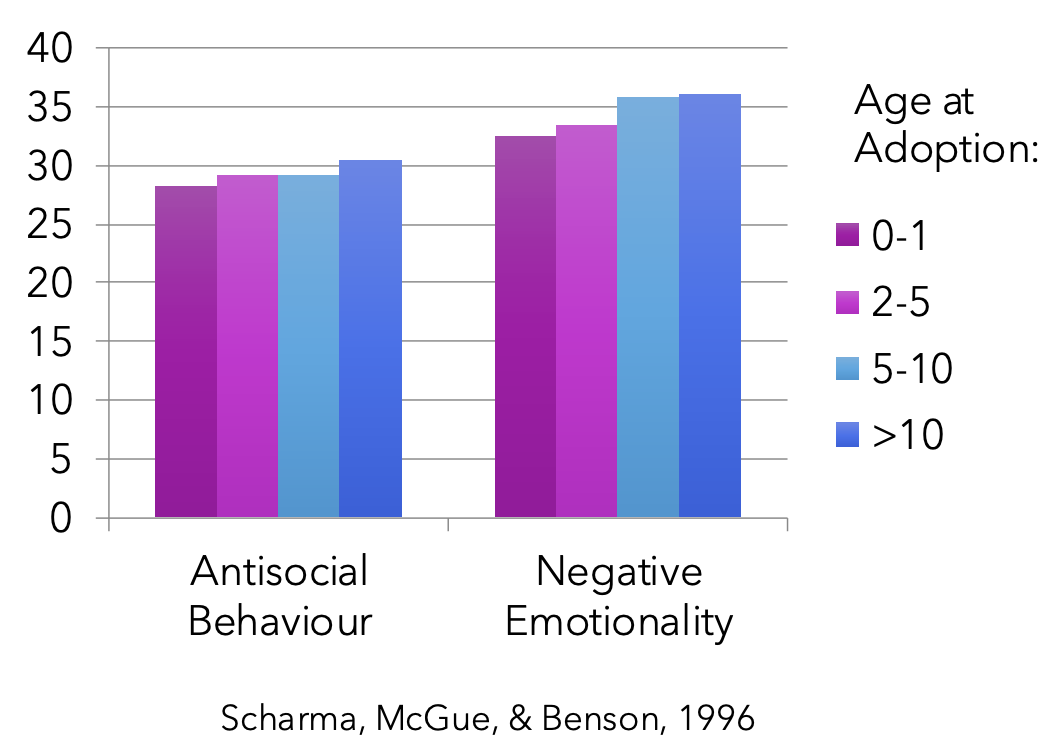
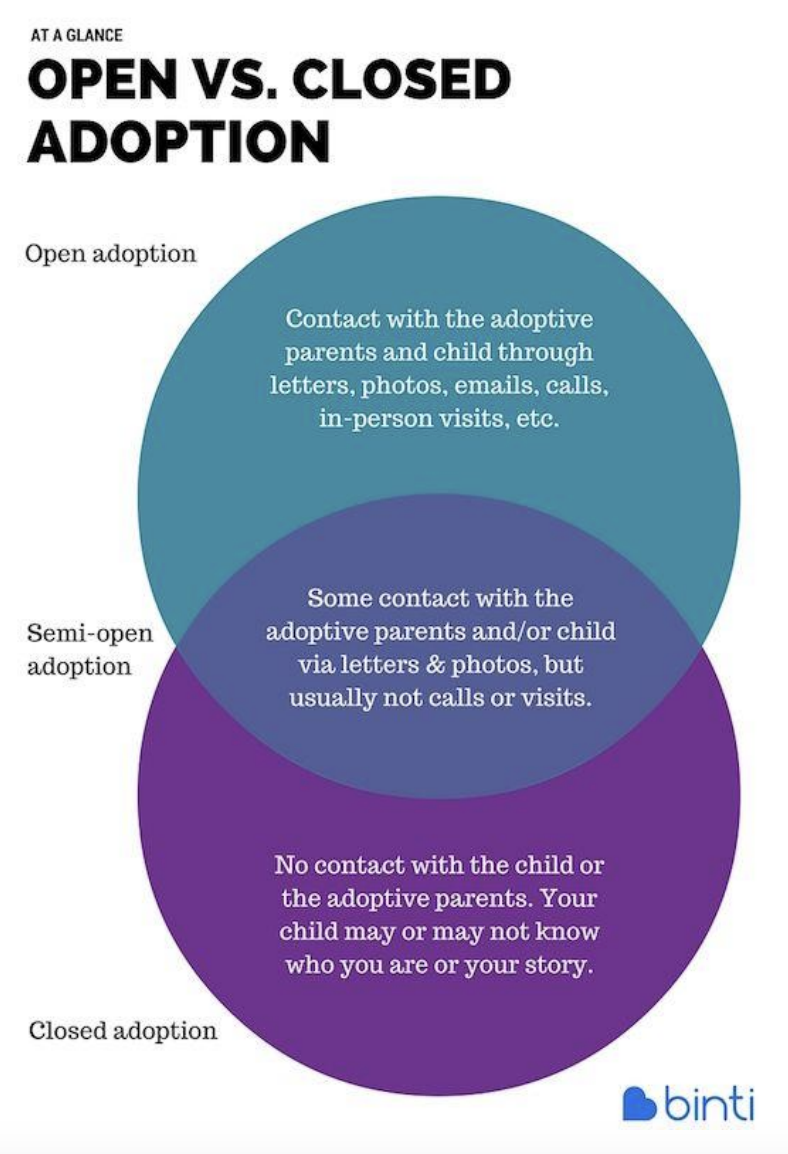
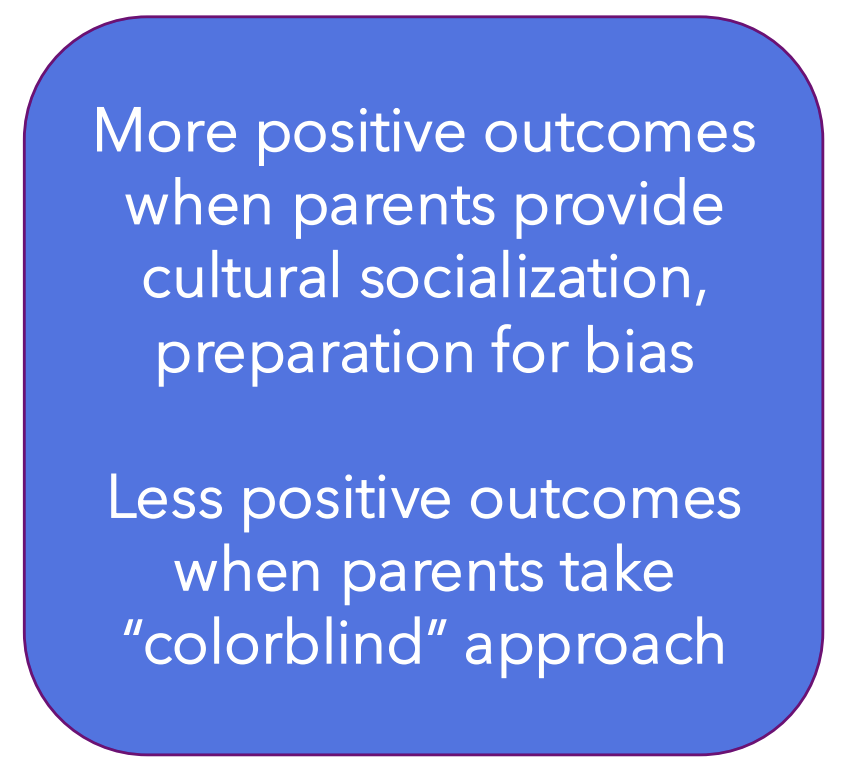
Impact of Adoption
Can be both a protective intervention and a risk factor, depending on the comparison group.
Also important to consider individuals’ lived experience with adoption.
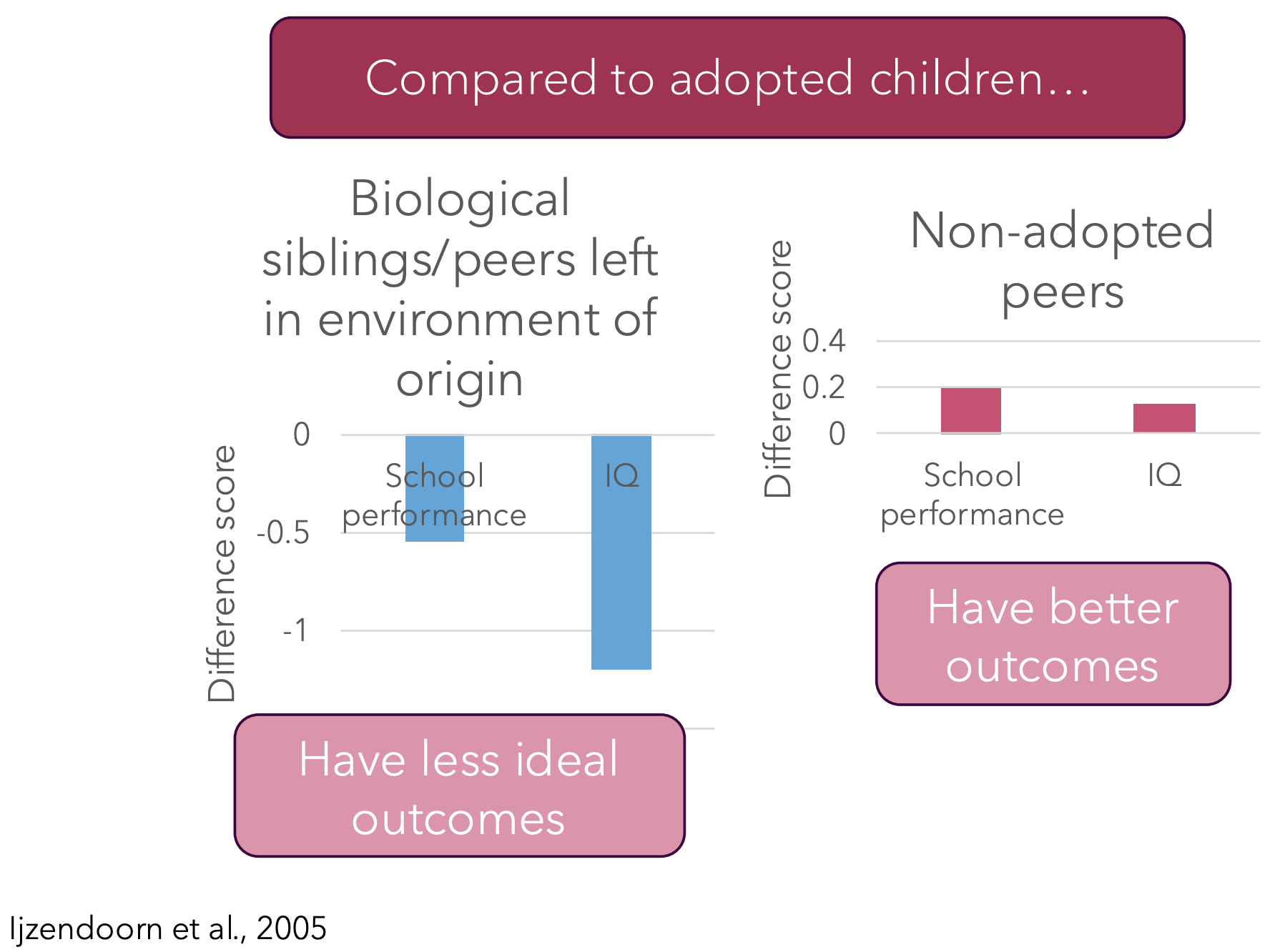
When children are cared for by someone other than their biological parent(s)
Adoption: the permanent, legal placement of an abandoned, relinquished, or orphaned child within a family of relatives (kinship adoption) or within an unrelated family (non-kinship adoption).
Foster Care: temporary long- or short-term out-of home placement for children whose parents are unable to care for them.
Why Foster Care?
No clear-cut rules, lots of variability.
Maltreatment: neglect, abuse.
Parents unable to provide caregiving: substance abuse, psychological/physical illness.
Homelessness.
Incarceration.
Failure to manage child’s behavior: juvenile offenses, truancy, running away.
Parental abandonment.
Foster Care
Intended to be a temporary arrangement.
- Goal typically is reuniting child with birth parents.
Child is legally the responsibility of the government.
- Foster arrangements open to supervision.
- Expectations, responsibilities of all involved may be unclear.
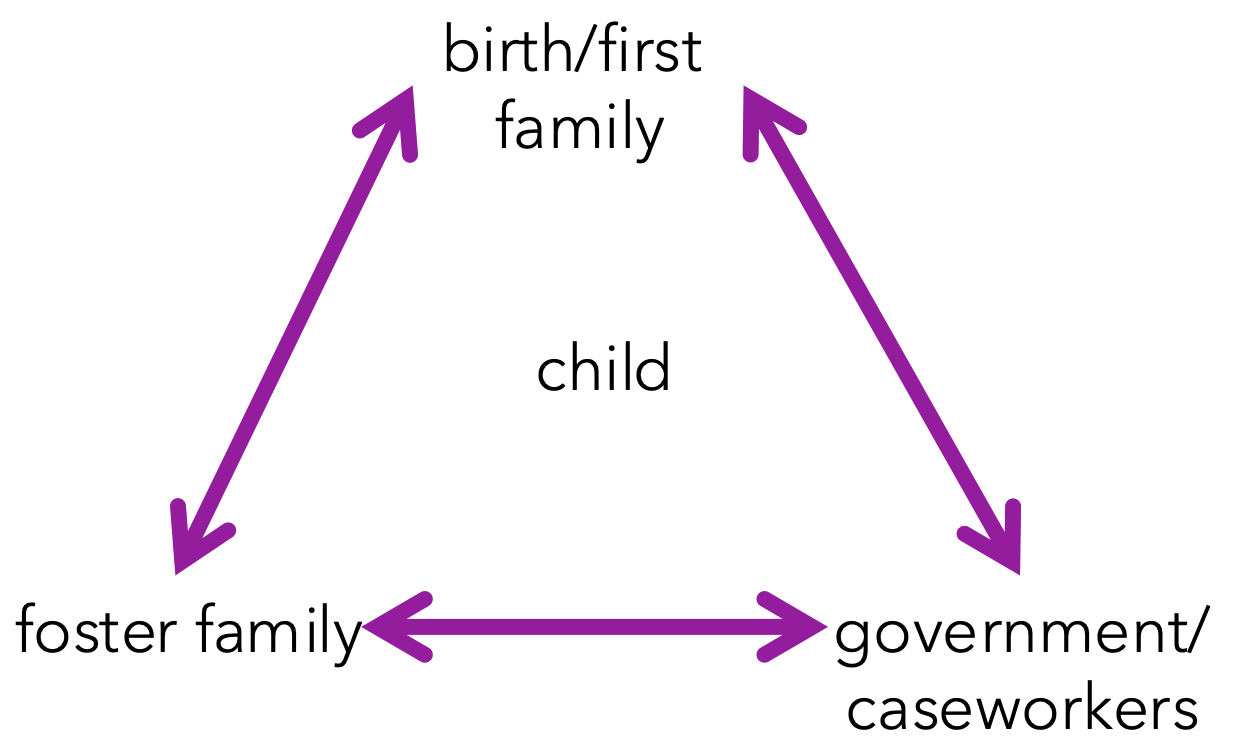
Foster Care
In Canada, ~28,000 children <14 in care (2016 Census).
In BC, ~6,000 children in care.
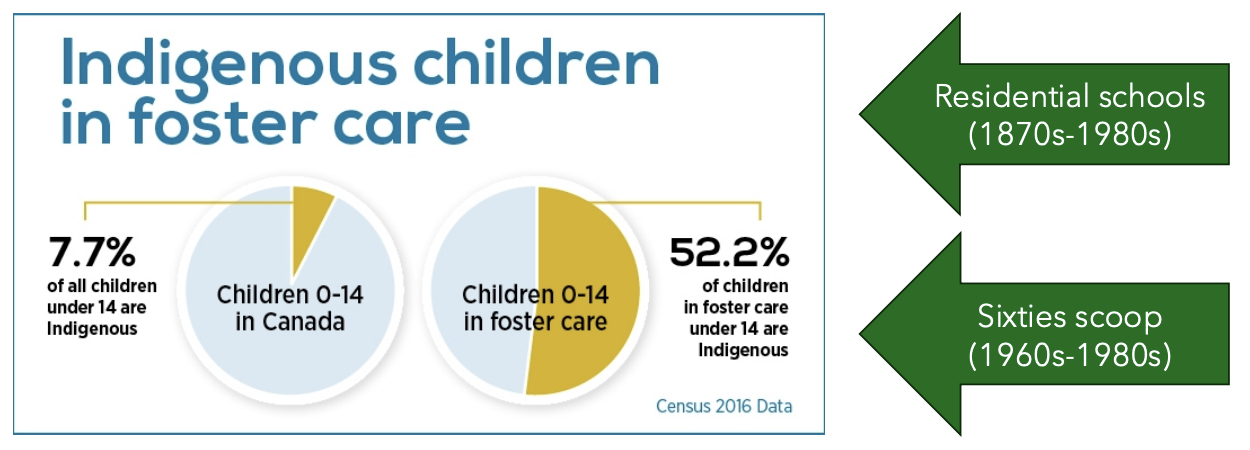
Impact of Foster Care
• Compared to general population, being/having been in foster care is associated with greater risk.

Impact of Foster Care
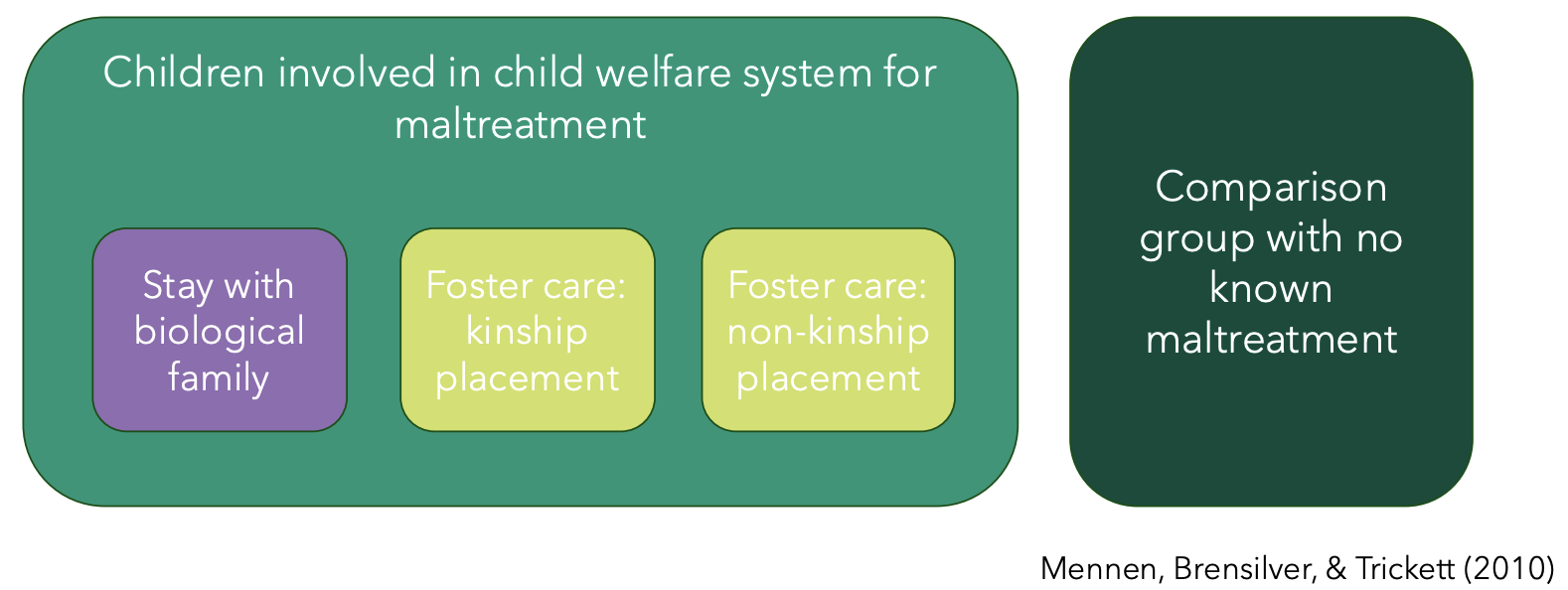
Impact of Foster Care
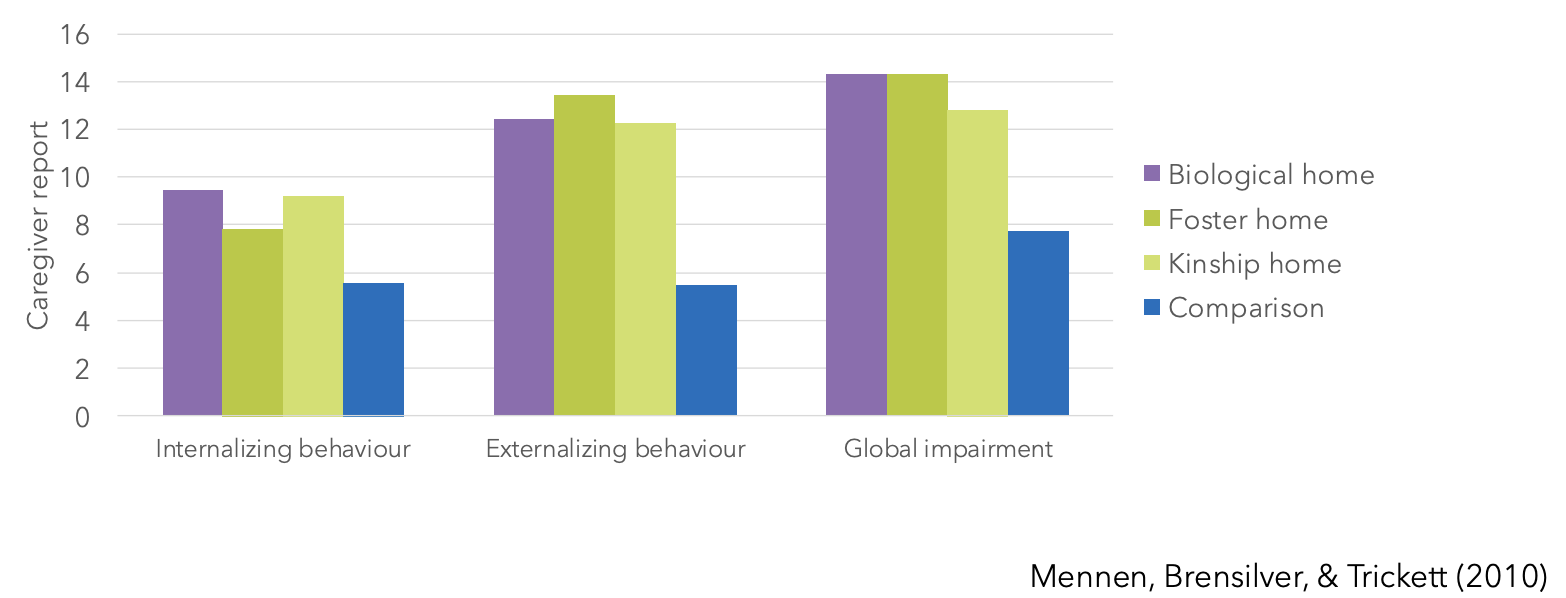
Impact of Foster Care
No difference in outcomes between children placed in foster care vs stay in home with history of maltreatment.
Impact of Foster Care

Impact of Foster Care

Foster Care Policy
How should policies approach foster care, particularly for children “at the margins” of placement?
Concerns over bias in who gets placed into foster care.
- Some studies suggest that Black and Indigenous youth are more likely to be removed from their homes, even with the same level/type of concern (ie, Macguire-Jack et al., 2020)
Policies that help and support first families without separation?
When children are cared for by someone other than their biological parent(s)
Adoption: the permanent, legal placement of an abandoned, relinquished, or orphaned child within a family of relatives (kinship adoption) or within an unrelated family (non-kinship adoption).
Foster Care: temporary long- or short-term out-of home placement for children whose parents are unable to care for them.
Institutionalization: in which an abandoned, relinquished, or orphaned child’s placement is in a residential facility (orphanage, children’s home, etc.)
Institutionalization
Historically common method of care for orphaned or abandoned children, children experiencing abuse, and/or disabled children.
- In mid-1900s fell out of use in N.America and Western Europe → foster care as alternative.
- But has remained standard in many countries.
Institutionalization
Many problems documented in institutionalized children.
Physical growth.
Cognitive problems; lower IQ.
Social-emotional development.
But, there was debate: Was this due to features of institutional care, or due to features of children who are placed into and remain in institutional care?
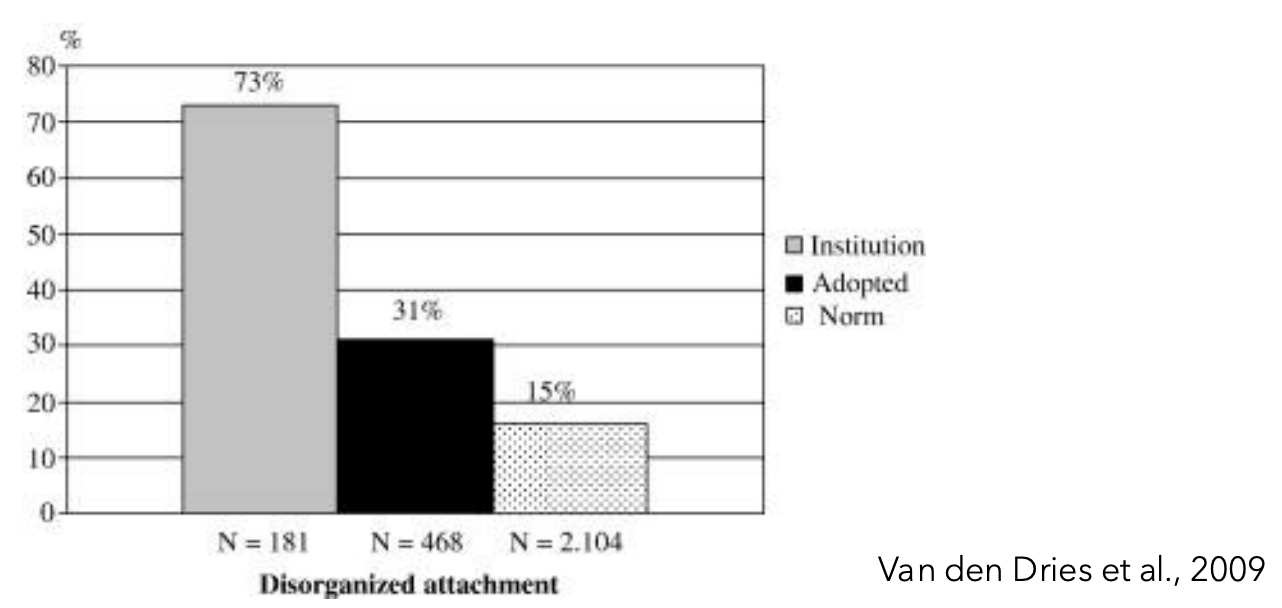
Bucharest Early Intervention Project
Goal to investigate the impacts of institutional care, and whether the impacts of institutional care could be ameliorated.
Begun in Romania in 2000-2001.
- Nicolae Ceausescu: 1965-1989.
- Institutional standard of care very poor: overcrowding, few caregivers, little stimulation, dirty.
- 1990: media reports of institution conditions emerged.
BEIP: Desgiign
Randomized, controlled study of institutionalization vs foster care.
Subjects.
- 136 institutionalized children: 6-31 months (all relatively healthy).
- 72 matched never-institutionalized children.
Half of children randomly assigned to foster care, half remained in institution with care-as-usual.
- Average age of placement = 22 months.
Assessed children prior to random assignment and then continued.
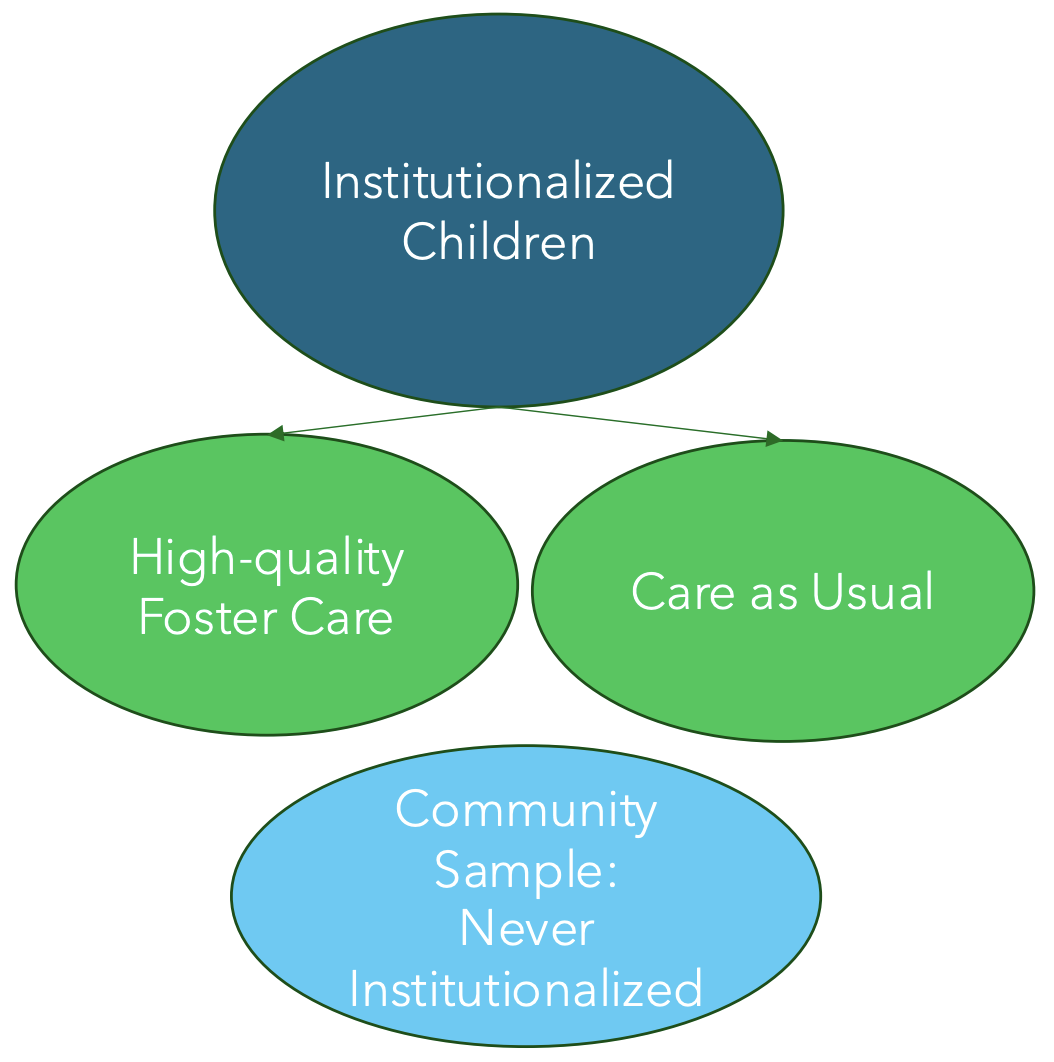
BEIP: Findings
• At the start of the study, institutionalized children were worse off than never-institutionalized children in almost every domain.
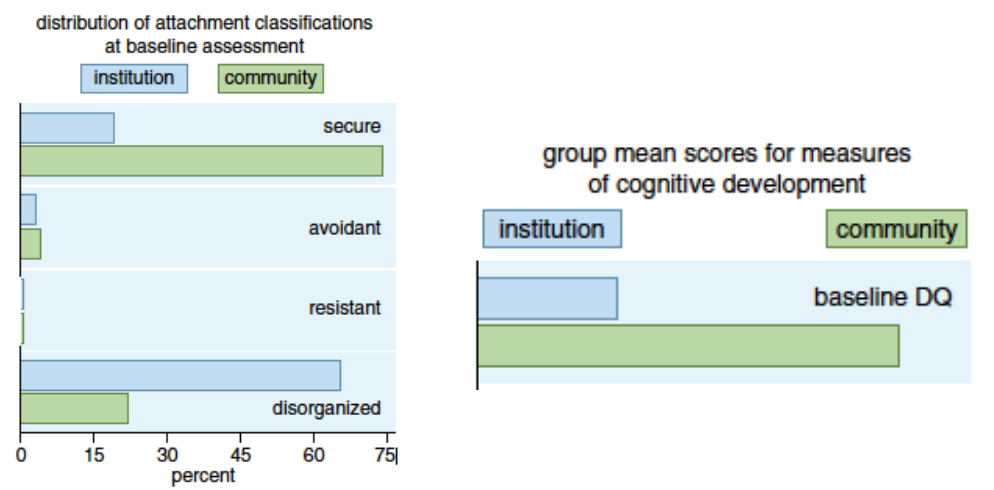
BEIP: Findings
Children placed into foster care showed marked improvements compared to children who remained in institutional care.
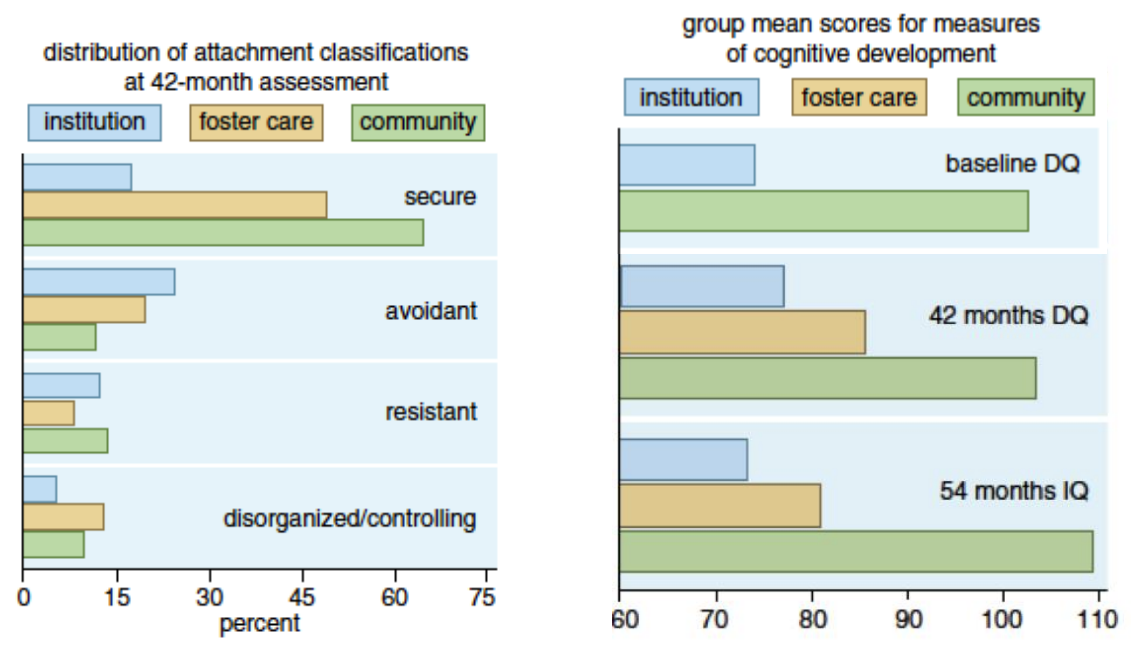
BEIP: Findings
But: duration of institutional care/timing of placement into foster care matters!
BEIP: Findings
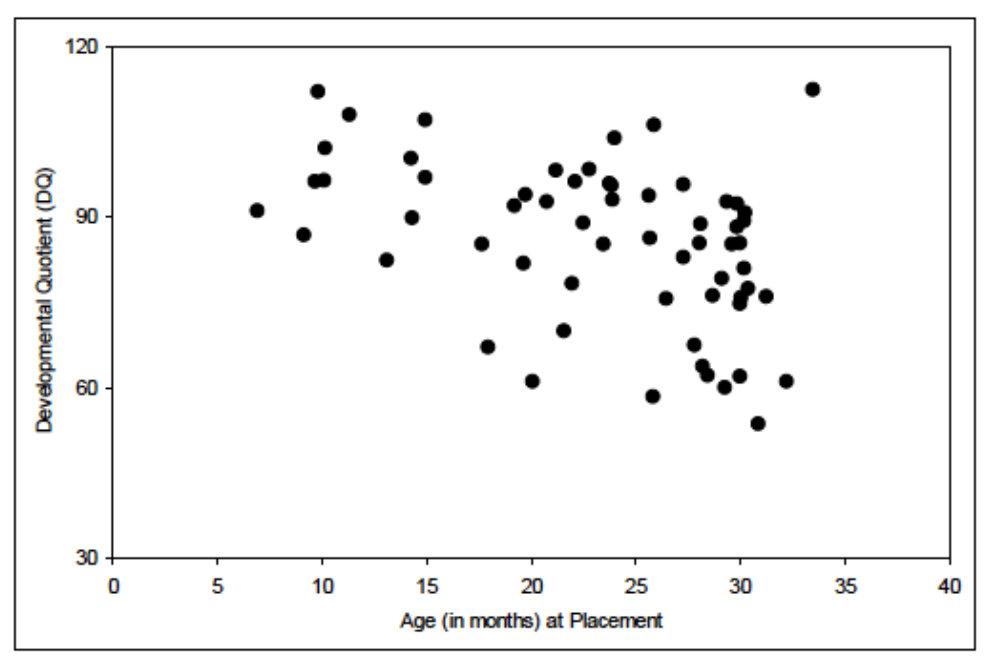
BEIP: Findings
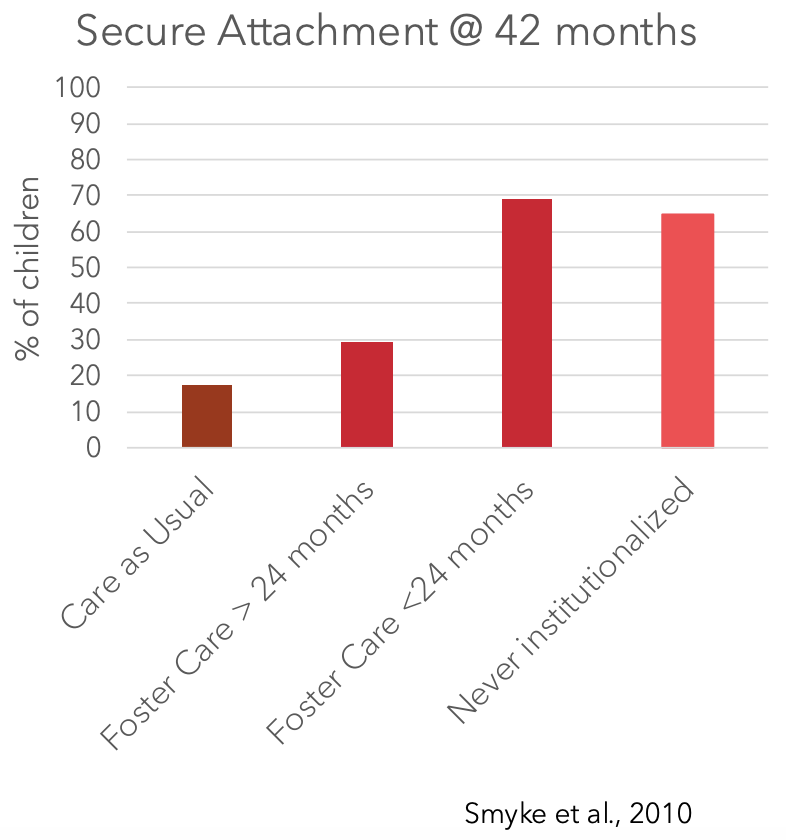
BEIP: Findings
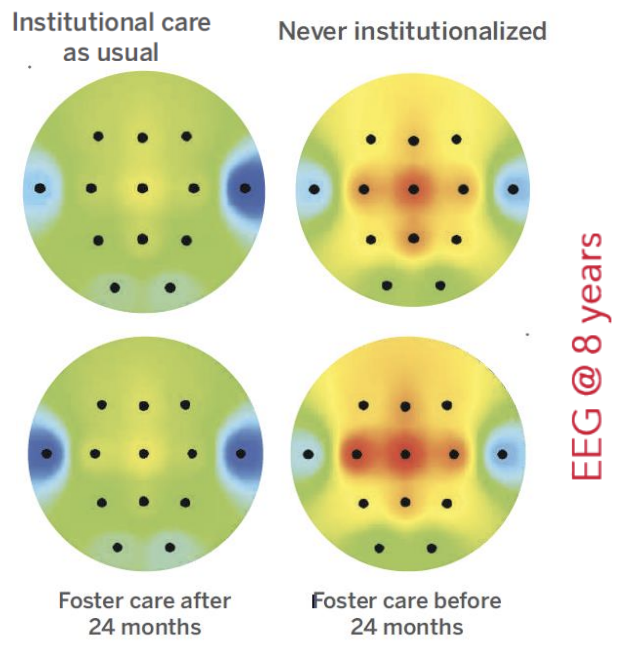
BEIP: Findings
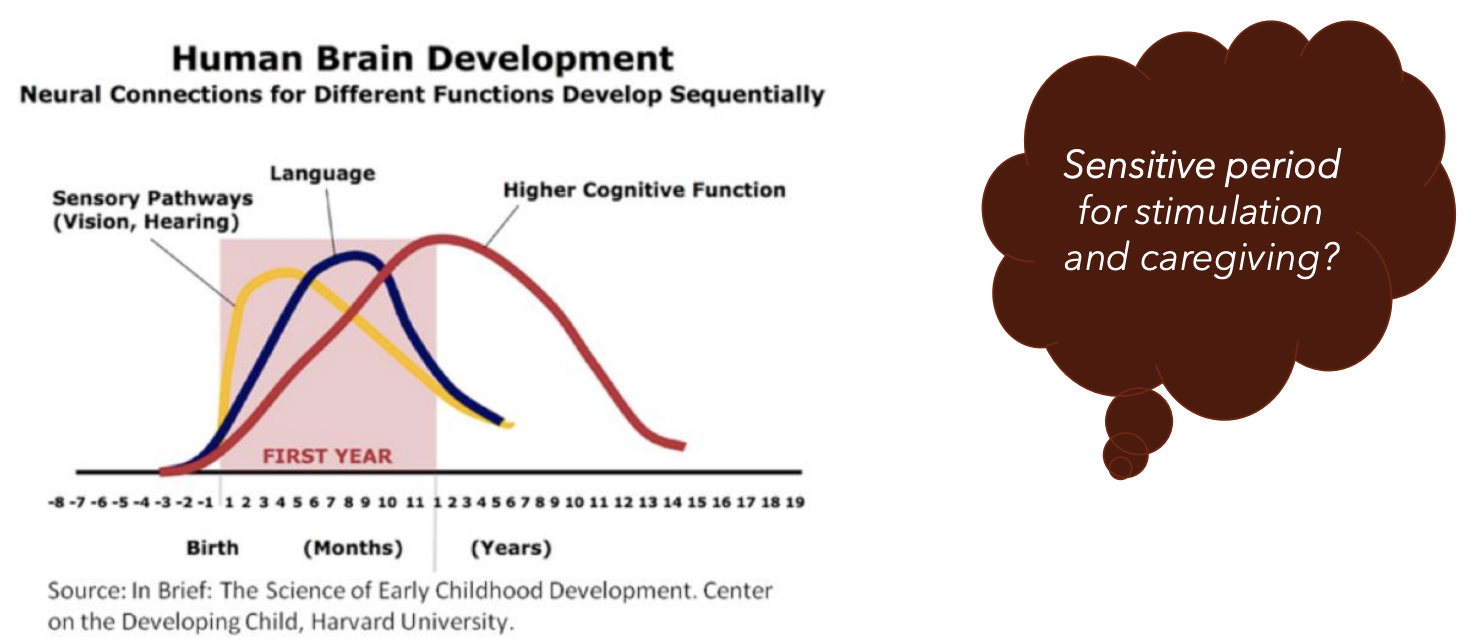
BEIP: Ethics
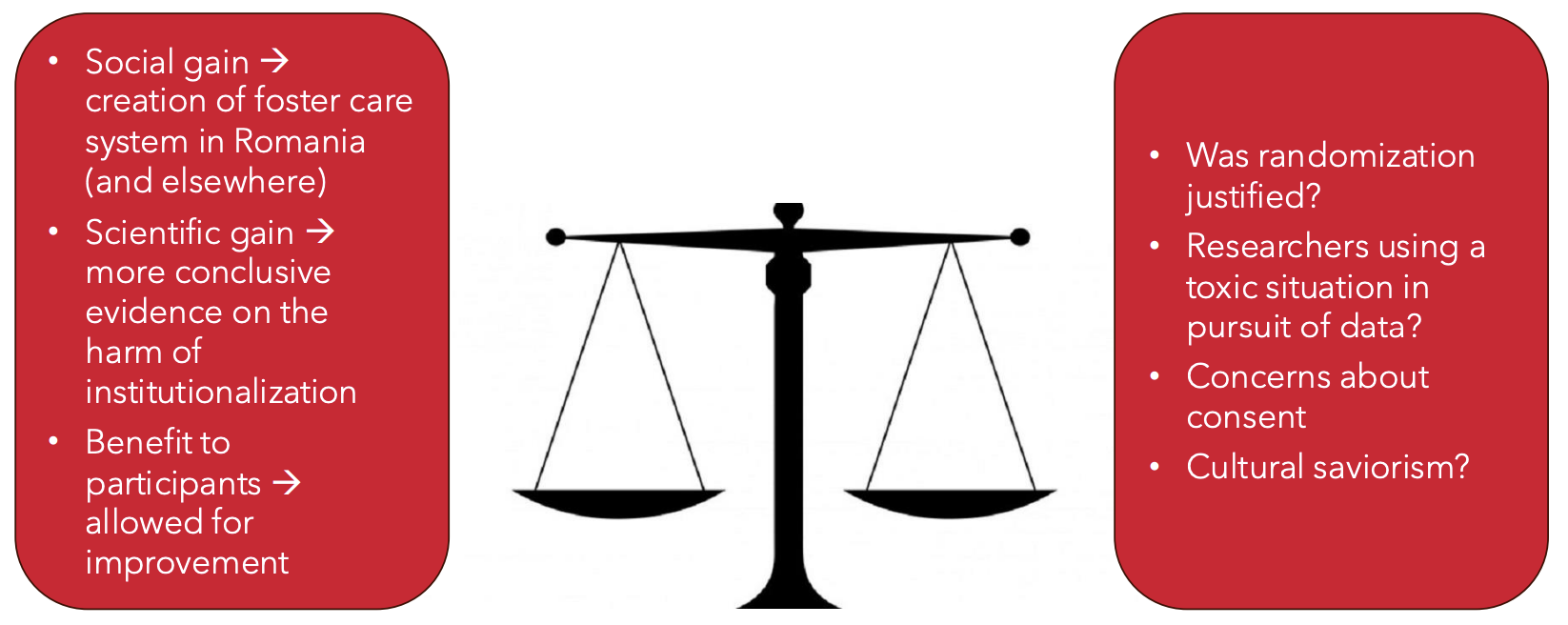
BEIP: Implications
In response to this project, the Romanian government instituted foster care system, laws forbidding institutionalization <2 years of age.
World-wide…
- Led to questioning over the use of institutions.
- Sparked new interventions for institutionalized children
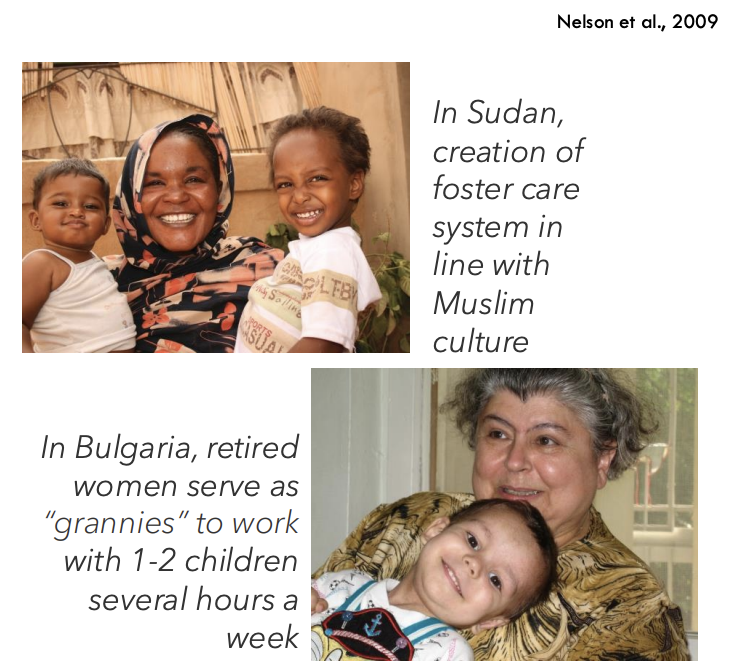
BEIP: Implications
For non-institutionalized children…
The human brain expects experiences and environmental input → without these experiences/input, typical development does not occur.
- Particularly important in first years of life
